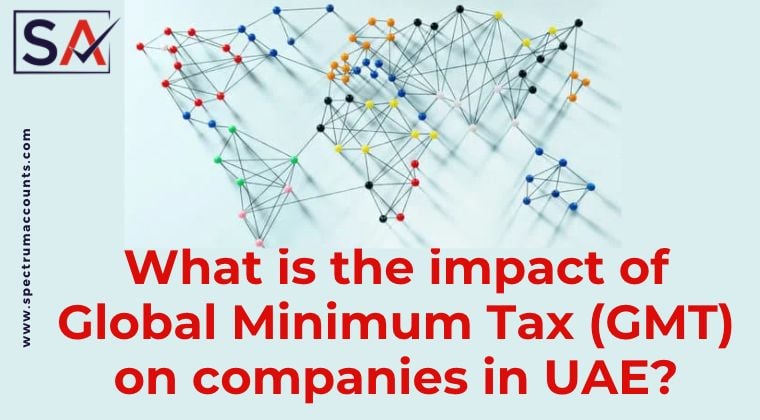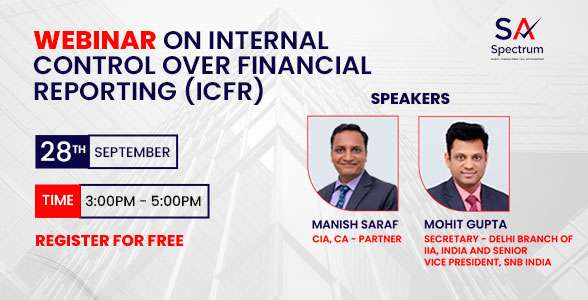Below, we shall discuss a plethora of questions relating to Global Minimum Tax and its impact on UAE
Question) How will the Two-Pillar Solution under Global Minimum Tax make sure that MNEs pay their fair share of tax in UAE?
Answer) Each pillar addresses a different gap in the existing rules that allow MNEs to avoid paying taxes. First, Pillar One applies to about 100 of the biggest and most profitable MNEs and re-allocates part of their profit to the countries where they sell their products and provide their services, where their consumers are. Without this rule, these companies can earn significant profits in a market without paying much tax there. Under Pillar Two, a much larger group of MNEs (any company with over EUR 750 million of annual revenue) would now be subject to a global minimum corporate tax. With the new rules, companies organising their affairs in a way that their profits in a given jurisdiction (whether in a low-tax jurisdiction or otherwise) are subject to an effective tax rate lower than the minimum rate, those profits would still be taxed at a minimum rate of 15%.
Question) To which all companies this Global Minimum Tax is going to be applicable? What is the impact of the Global Minimum Tax going to effect the companies in UAE? Do UAE based companies need to pay tax? What about the other multinational companies: shouldn’t they pay tax, too?
Answer) First, all taxpayers should pay their fair share of tax and the BEPS Project as a whole aims at making sure this is the case for MNEs. While it is true that the re-allocation of profit under Pillar One applies to about 100 companies, these are the largest and most profitable companies, and expanding the scope of this rule to bring more companies in would not necessarily increase the amount of re-allocated profit significantly but would add complexity. Nevertheless, there is a provision to expand the scope after 7 years once there is experience with implementation. Pillar One also includes a commitment to develop simplified, streamlined approaches to the application of transfer pricing rules to certain arrangements, with a particular focus on the needs of low capacity countries, which are very often the subject of tax disputes.
Pillar Two’s goal is to ensure that a much broader range of MNEs (those with a turnover of at least EUR 750M, which will be hundreds of companies) pay a minimum level of tax, while preserving the ability of all companies to innovate and be competitive. For other, smaller companies, the existing rules continue to apply and the Inclusive Framework has a number of other international tax standards like the BEPS actions, to reduce the risks of tax avoidance and ensure that they pay their fair share.
Question) What is the tax rate under Global Minimum Tax and what is the tax rate applicable to companies in Dubai and UAE?
Answer) With the Two-Pillar Solution, all types of economies – developing, emerging or with a higher GDP – will benefit from extra tax revenues. Under Pillar One, taxing rights on more than USD 125 billion of profit are expected to be reallocated to market jurisdictions each year. With respect to Pillar Two, the global minimum tax of 15% is estimated to generate around USD 150 billion in additional global tax revenues annually. These extra revenues will be particularly welcome, as governments need to fund the COVID-19 recovery.
Question) What is the benefit for UAE government out of the Global Minimum Tax?
Answer) The Two-Pillar Solution acknowledges the calls from developing countries for more mechanical, predictable rules, and more generally, provides a redistribution of taxing rights to market jurisdictions based on where sales and users are located – often in developing countries. It also provides for a global minimum tax, which will help put an end to tax havens, lessen the incentive for MNEs to shift profits out of developing countries, and reduce pressure on developing country governments to offer wasteful tax incentives and tax holidays, while providing a carve-out for low- taxed activities that have real substance. This means that developing countries could still offer effective incentives that attract genuine, substantive foreign direct investment. Importantly, this multilaterally agreed solution avoids the risk of retaliatory trade sanctions that could result from unilateral approaches such as digital services taxes.
Developing countries (particularly those in Africa, and with the support of the African Tax Administration Forum (ATAF)) have had a significant influence on the agreement. For example, on Pillar One, the agreement includes a commitment to reduce the scope threshold in 7 years (provided the system is operating as intended), which will result in a bigger pool of profits to be reallocated to markets; the nexus threshold – the point at which developing countries would see an allocation under Pillar One from an in-scope MNE – is set at a low level (EUR 1 million, reduced to EUR 250 000 for the smallest countries) so as to maximise the number of countries that will see revenue benefits; an elective option on tax certainty which will help ensure that countries which have no or only very small numbers of disputes do not get tied up in mandatory dispute resolution processes; Pillar One also includes a commitment to develop simplified, streamlined approaches, with a particular focus on the needs of low capacity countries, to the application to transfer pricing rules to certain arrangements that are very often the subject of tax disputes and, under Pillar Two, the guaranteed availability of the Subject to tax rule (STTR). These elements contributed to a balanced agreement for all parties in the negotiations.
Developing countries will gain revenue. Under Pillar One, which will see more than USD 125 billion of profit re-allocated to market jurisdictions, developing countries will stand to gain more than developed countries as a share of corporate income tax (CIT). With a rate of 15%, the global minimum tax is expected to generate around USD 150 billion in additional global tax revenues per year. In addition to this, developing countries are expected to gain further revenues under a treaty- based Subject to tax rule (STTR) which will allow countries to retain their right to tax certain payments made to related parties abroad which often pose BEPS risks, such as interest and royalties. The subject to tax rule will be made available to all developing countries.
Question) Will this end the possibility of profit-shifting by MNEs to UAE and to out of UAE?
Answer) Yes. All countries are sovereign and can set the tax policy of their choice, but harmful tax competition and aggressive tax planning need to end. Tax havens have thrived over the years by offering secrecy (like bank secrecy) and shell companies (where the company doesn’t need to have any employees or activity in the jurisdiction) and no or low tax on profits booked there. The work of the G20 and the OECD-hosted Global Forum on Transparency and Exchange of Information for Tax Purposes has ended bank secrecy (including leading to the automatic exchange of bank information) and the OECD Base Erosion and Profit Shifting (BEPS) Project requires companies to have a minimum level of substance to put an end to shell companies along with important transparency rules so that tax administrations can apply their tax rules effectively. Pillar Two will now ensure that those companies pay a minimum effective tax rate of 15% on their profits booked there (subject to carve outs for real, substantial activities). The cumulative impact of these initiatives means that “tax havens” as people think of them would no longer exist. Those jurisdictions that offer international financial services may continue to find a market for their services, but on the basis that they add real economic value for their customers and support for commercial transactions that are not tax-driven.
Question) When will companies start paying this new tax?
Answer) The Detailed Implementation Plan provides for a clear and ambitious timeline to ensure an effective implementation from 2023 onwards. On Pillar One, model rules for domestic legislation will be developed by early 2022 and the new taxing right in respect of re-allocated profit (Amount A) will be implemented through a multilateral convention with a view to allowing it to come into effect in 2023. Meanwhile, work will be developed on Amount B and the in-country baseline marketing and distribution activities in scope, by the end of 2022. As for Pillar Two, model rules to give effect to the minimum corporate tax will be developed by November 2021, as well as the model treaty provision to implement the subject to tax rule. A multilateral instrument will then be released by mid-2022 to facilitate the implementation of this rule in bilateral treaties.
Question) If UAE comes up with a corporate tax of 20% or more, then the minimum tax set at 15% going to impact the companies in UAE still?
Answer) A large portion of corporate profit is subject to an effective tax rate lower than 15% – despite the fact that the MNEs’ home jurisdiction has a stated corporate tax rate that is much higher rate, so the compromise reached represents a major achievement. Remember also that the Two-Pillar Solution has been agreed by a large and diverse group of Inclusive Framework members, many of which have corporate tax rates that are lower than 15%. While many members may have been happier with a higher minimum rate, Pillar Two is the result of compromises on all sides.
Question) Is UAE going to implement Global Minimum Tax under two pillar solution?
Answer) The Two-Pillar Solution is the commitment of 136 out of 140 Inclusive Framework members, under a mandate from the G20. As with other international standards developed by the OECD, commitment comes with the obligation to implement and this implementation process will be monitored closely by the Inclusive Framework. The OECD track record on this is excellent – implementation of tax transparency standards and the BEPS package are prime examples – and securing a global level playing field has always been the highest priority. The adoption of the Detailed Implementation Plan, which provides for a concrete and ambitious target dates, is the first important step to ensure that the agreed solution will be implemented in practice.
Question) The Two-Pillar Solution provides exclusions for things like mining companies, shipping, regulated financial services and pension funds; why shouldn’t those kinds of companies pay their fair share?
Answer) The aim of the Two-Pillar Solution is to make sure that MNEs can’t take advantage of the old rules on international tax to avoid paying their fair share and the new rules are designed to capture and address this problem. The exclusions provided for relate to types of profit and activities that are not part of this problem either because the profit is already tied to the place where it is earned (for example, regulated financial services and mining companies will have to have their operations in the place where they earn their income) or the activity benefits from different taxation regimes due to their specific nature (such as shipping companies and pension funds). These types of businesses are still subject to all the other international tax standards on transparency and BEPS to ensure that tax authorities can tax them effectively.
Reach out to Spectrum Auditing to know more about how your business gets impacted if GMT is implemented in UAE and get a feasibility done by the experts. Call us today for any kind of assistance at +971 4 2699329 or email us at [email protected] to get all your queries addressed. Spectrum is your partner in your success.



 contact us
contact us